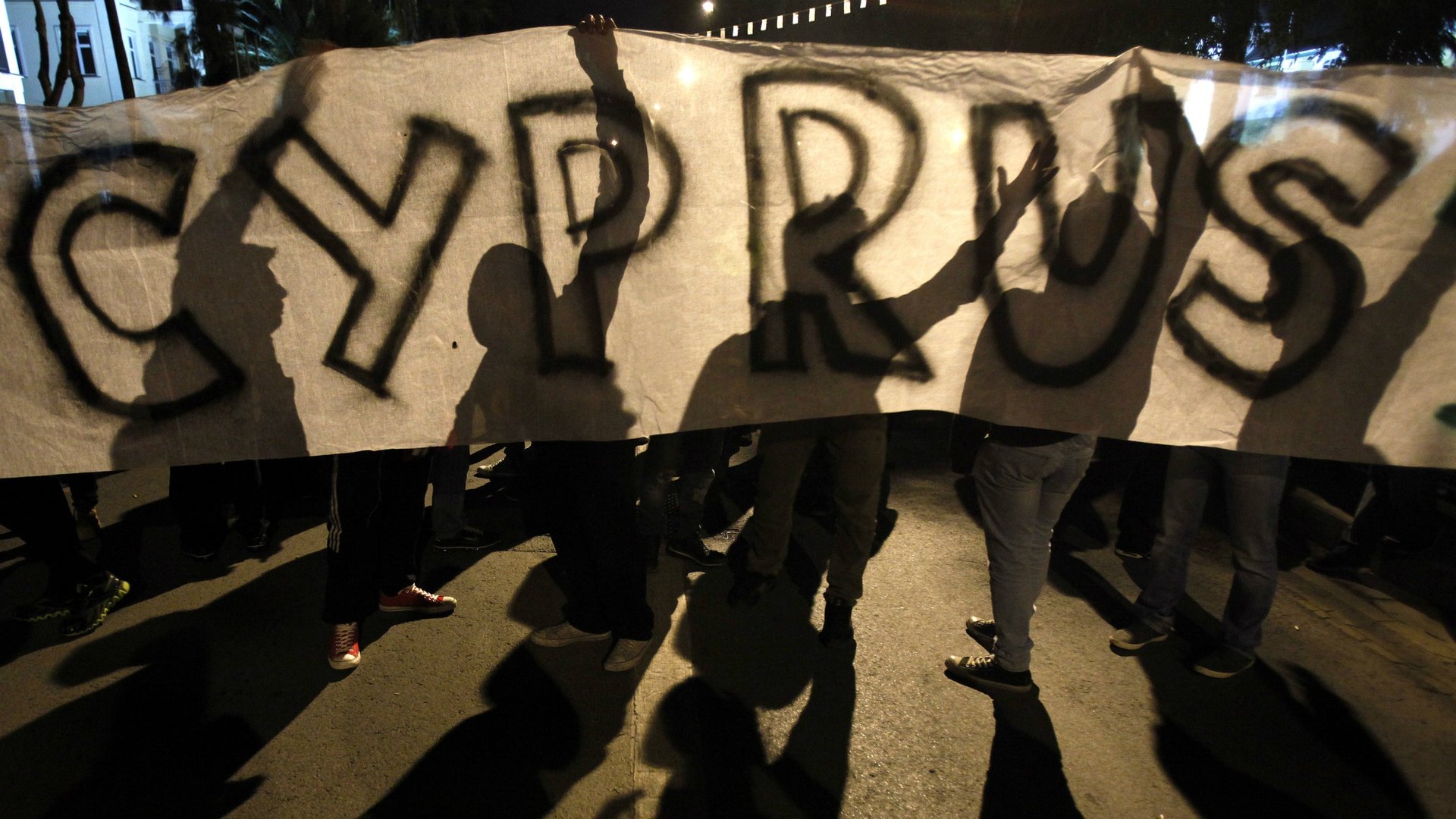Sunday night save: Details of Cyprus’ troika deal
After a contentious late-night meeting, Cyprus has a draft agreement with the troika of the European Central Bank (ECB), the IMF, and euro zone countries to obtain a €10 billion ($13 billion) bailout that would keep the country in the euro. Euro zone finance ministers have signed off on the deal, and German Finance Minister Wolfgang Schäuble says that the new plan will not need approval from the Cypriot parliament, which struck down an earlier plan.


After a contentious late-night meeting, Cyprus has a draft agreement with the troika of the European Central Bank (ECB), the IMF, and euro zone countries to obtain a €10 billion ($13 billion) bailout that would keep the country in the euro. Euro zone finance ministers have signed off on the deal, and German Finance Minister Wolfgang Schäuble says that the new plan will not need approval from the Cypriot parliament, which struck down an earlier plan.
The Popular Bank of Cyprus (better known as Laiki) would effectively shut down, with insured deposits of less than €100,000 transferred to the larger and more stable Bank of Cyprus. Uninsured deposits at Laiki would be frozen and used to pay down bad debts, meaning they could be partially or completely wiped out. If those deposits are enough to cover all the bank’s losses, it’s possible that uninsured depositors at the Bank of Cyprus and the country’s other banks wouldn’t have to take a haircut, though that remains to be seen. The deal will protect deposits of less than €100,000 at all of the country’s struggling banks.
The new deal will also impose “temporary, proportionate and non-discriminatory” capital controls aimed at keeping money within Cyprus. The country’s banks have been closed since last week and limits have been placed on ATM withdrawals. Those measures, in addition to unspecified capital controls that will be put into place, are an attempt to prevent bank runs, which began occurring on March 16 when it was clear that depositors would take part of the hit for the country’s bailout. European Commission president Olli Rehn refused to give a timetable for how long the controls would remain in place.
The European Central Bank had threatened to halt its assistance to both banks on Tuesday, a move which would have caused the Cypriot financial system to collapse. It looks like that immediate crisis has now been averted with a last-minute late-night solution. The longer-term consequences for Cyprus and the euro zone, however, are far from settled.